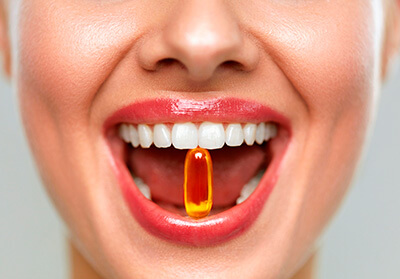
Can A Pill Arouse A Woman’s Libido?
Many people in the Western world still find it difficult to discuss their sex drive, and that’s precisely why some people have a hard time understanding it. When we don’t confront something, or are afraid to, misinformation and misunderstandings can abound and make it harder to understand what’s really going on. That goes doubly for women, since the majority of the conversation about the sex drive seems to focus on men, and ignore women. The truth is that not everyone has an active sex drive, and that’s distressing to many people. One solution that’s been raised? Pills. But can a pill really improve your sex drive?
The libido is a complex system, made up of interconnecting physiological and psychological processes in the body. Everything from your mental wellbeing to your body’s unique biology can have an effect on your libido, and female arousal pills have been developed to try and address those different parts, boosting the sex drive and improving it to the individual’s satisfaction.
How are these pills supposed to work, exactly? Well first we have to differentiate between two different types of pills on offer in the market today: drugs and supplements.
Drugs are medicines developed by pharmaceutical companies, submitted for the approval of the FDA, and then sold either over-the-counter or by prescription from a licensed medical practitioner. The drugs that claim to help boost women’s sex drive are supposed to directly affect the brain’s unique chemistry, promoting the release of chemicals like dopamine and norepinephrine, both of which are associated with imrpoved sexual desire. By directly acting on the brain, female libido drugs are meant to normalize the chemical balance in the body, hopefully leading to a more normal sex drive.
These drugs have some drawbacks. First, one has to be officially diagnosed with hypoactive sexual desire disorder (HSDD) by a doctor, who then must write a prescription. Then there’s the problem of side effects. As with many drugs, these female libido pills can come with some unwanted side effects, and they can include drowiness, fatigue, and sleeping problems.
Supplements are something else altogether. Nutritional supplements that promote better female sexual desire aren’t intended to “fix” or “treat” anything, but to naturally guide and promote existing biological processes in order to facilitate a higher libido. They can take longer to start working, but they also typically come with few (if any) side effects, something many people find preferable. There are other benefits to supplements: whereas drugs require FDA approval to be sold, nutritional supplements do not, and thus are often cheaper and easier to purchase than pharmaceuticals. However, since they do not require FDA approval, they do not need to prove that they work before they sell them, meaning customers need to make sure to do their research about each individual supplement and their ingredients before buying, otherwise they could be wasting their money on something that doesn’t work.
How are supplemental pills supposed to work? They typically promise to address deficiencies in the body that might be preventing normal sexual desire and function. Because limited blood flow is associated with lessened sexual arousal, many of these supplements contain ingredients intended to promote increased circulation to address this symptom. They also contain ingredients meant to promote more testosterone in the body – and testosterone is the hormone most associated with increased sexual desire, in both men and women.
Some women might have hormone imbalances that are causing their sexual desire to plummet, and as a result some supplements contain ingredients like maca root, a traditional Peruvian plant used for balancing and normalizing hormone balance in the body.
The real question is: do they work? Well, it depends on who you ask. While there are those who have found success with supplements or with pills, not everyone has the same experience because everyone’s biology is different.
Now one thing we should get straight is that pills are not some magic solution to your issues. While they might be able to help, lots of things could be affecting you that are taking a toll on your libido – things like prescription drug use, as loss of sexual desire is a common side effect, especially for SSRIs. They could also include psychological trauma, stress from work or your personal life, or a host of other things that a pill simply can’t “fix.”
The point is not that there’s a simple answer – because there isn’t – but that there’s hope for those who might have some physiological issues that pills could help with. As always, the best advice is to seek the advice of a doctor. Be honest with them about what’s going on in your life, and they should be able to point you in the right direction. Thankfully there are several options that could help, meaning that if one doesn’t work for you, there are always others, so the fix for you could be right around the corner.